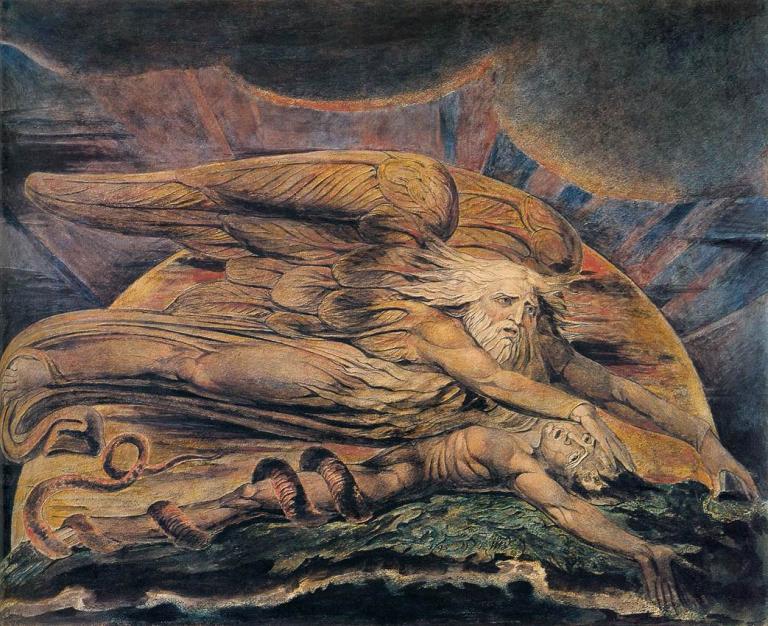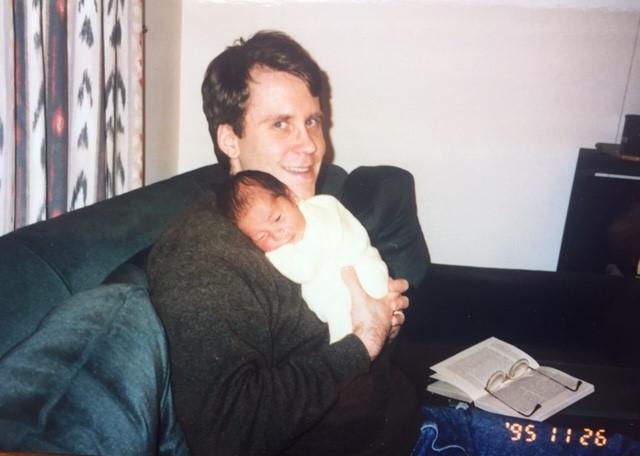
For centuries, theologians and philosophers have debated whether there is conscious control or random processes at work that shape the universe. No doubt, for some of us, the episodic discourse is a nail biter. For others, it’s a real yawner. Regardless of your convictions and conclusions on divine sovereignty and control vs. human freedom and/or cosmic chaos, I am trying to discern instances of what a neurologist said: my family and I are to look for indications of conscious control in the midst of randomness as my son’s body responds to a traumatic brain injury (TBI).
Recently, we have witnessed our son displaying conscious control related to dental care. No, he’s not brushing and flossing his teeth. But he is permitting CNA’s to get in there and brush and clean his teeth and mouth for him. Often it takes his mother to encourage him to open his mouth wide for the sake of healthy teeth, gums and wellbeing before he will permit entry. But what a difference time can make—Christopher’s mouth used to be a yawning machine and steel trap that would involuntarily open and close at a moment’s notice.
We are searching for patterns of conscious control, recurring instances of the same behavior. Whether it is a smile in response to someone entering Christopher’s room or talking with him, or an open mouth or hand in response to a prompt, we are looking for conscious order to emerge out of randomness and apparent chaos.
To the naked eye, it might appear that life events are completely and utterly random and meaningless. We’ve sure experienced enough randomness and chaos these past six months since the TBI to consider nihilism a live option. For others, it might appear that biological processes, the invisible hand of the market, or a divine force determines life events and moves them toward a destination. The jury’s out for many of us in discerning whether this is so, including whether the process, hand or force is benevolent. Some days I struggle to see instances of divine, conscious, and benevolent control. Painfully conscious awareness of utterly random movements in Christopher, or chaos, evil, cruelty and callousness in the world and this traumatizing ordeal so quickly and readily dominate my mind.
But then I see…I see Christopher’s hand respond to the therapist’s prompt, or his mouth open wide for the CNA to brush his teeth and gums based on his mother’s request. I witness how hundreds of people lend a benevolent hand to help us cope and hope. I read the Psalms, which provide mysterious comfort for my soul, as the psalmists lift their hands to heaven and open wide their souls to God in petition and praise. I envision Jesus offering his glorious nail-marked hand to hold so he can lead us. These patterns and reminders help me to keep looking and praying for God to guide the process with sovereign love and to heal my son.
It takes conscious effort to look objectively in search of benevolent control and natural processes that produce healing. It also takes conscious effort to ignore those same forces at work in our world. So which will we choose to expend effort on–searching or ignoring?
My heart’s praise is that the God who spoke order out of chaos when the earth was formless and void and brought light out of darkness continues to do so. There is chaos in this world and there is order. There is darkness in this world and there is light. Now which will gain the upper hand? Will we fixate on the chaos or look to the Spirit who hovers over the waters and who brings order out of chaos?
In addressing the chaos of the COVID pandemic, Rabbi Marcelo Bronstein draws attention to the Genesis creation account. He notes how the earth was unformed and void (tohu va’vohu) at the outset of creation. Rabbi Bronstein goes on to reflect on how there was chaos “and” the divine wind or Spirit hovering over the waters (Genesis 1:2). He reasons based on this text that there is not simply chaos in our world. There is also the divine force that brings order out of chaos. The rabbi reassures us that we are not alone. Referencing Abraham Heschel, he asserts that God goes in search of humanity, as the Spirit of God is present. Then the rabbi hovers over the English conjunction “and” that we find in our translations—“and the Spirit”:
The key is in the power of this little word (prefix, really) ve- in the Hebrew: and.
Yes, we have void, and yes, we have chaos. Yes, we have emptiness, anxiety, confusion, etc. And at the same time we also have the winds of God hovering over us: winds of hope, resilience, courage, vision and creativity.
The spiritual work we have to do is to decide what we are going to pay attention to. We have survived other chaotic and anxiety-driven situations in our lives. We have the tools; they are inscribed in our souls from the beginning. Ours is the work of being mindful, of meditating or paying attention in order to decide where we are putting kavanah, our intention and our attention. The and gives us the clue. Yes, tragedy and also hope.
The and is the beginning of spiritual work. The and signals us that at some point we should turn off the news, connect to people we love, turn to what is reliable in our daily schedule. The and marks our re-creation of routine.

Will I focus on the disorder, the chaos, the darkness that I see all around me, or “and the Spirit”? Will I intentionally and diligently look for conscious, divine movement at work all around me or stay in the darkness? Will I focus my gaze on searhing for conscious control in my son’s being or fixate on the random movements? It’s my choice.
Dear God, help me to say “and”—”and the Spirit…” May I fix my gaze on your conscious, divine movement through your Spirit and your Word who bring light and life to our world rather than fixate on the chaos and the darkness. Divine Spirit, hover over my son and foster conscious control and healing again and again in Christopher’s young life. Divine Word, speak order out of the chaos and light out of the darkness in the depths of his being!
In the beginning God created the heavens and the earth. Now the earth was formless and empty, darkness was over the surface of the deep, and the Spirit of God was hovering over the waters. And God said, “Let there be light,” and there was light. God saw that the light was good, and he separated the light from the darkness. God called the light “day,” and the darkness he called “night.” And there was evening, and there was morning—the first day (Genesis 1:1-5; NIV).













